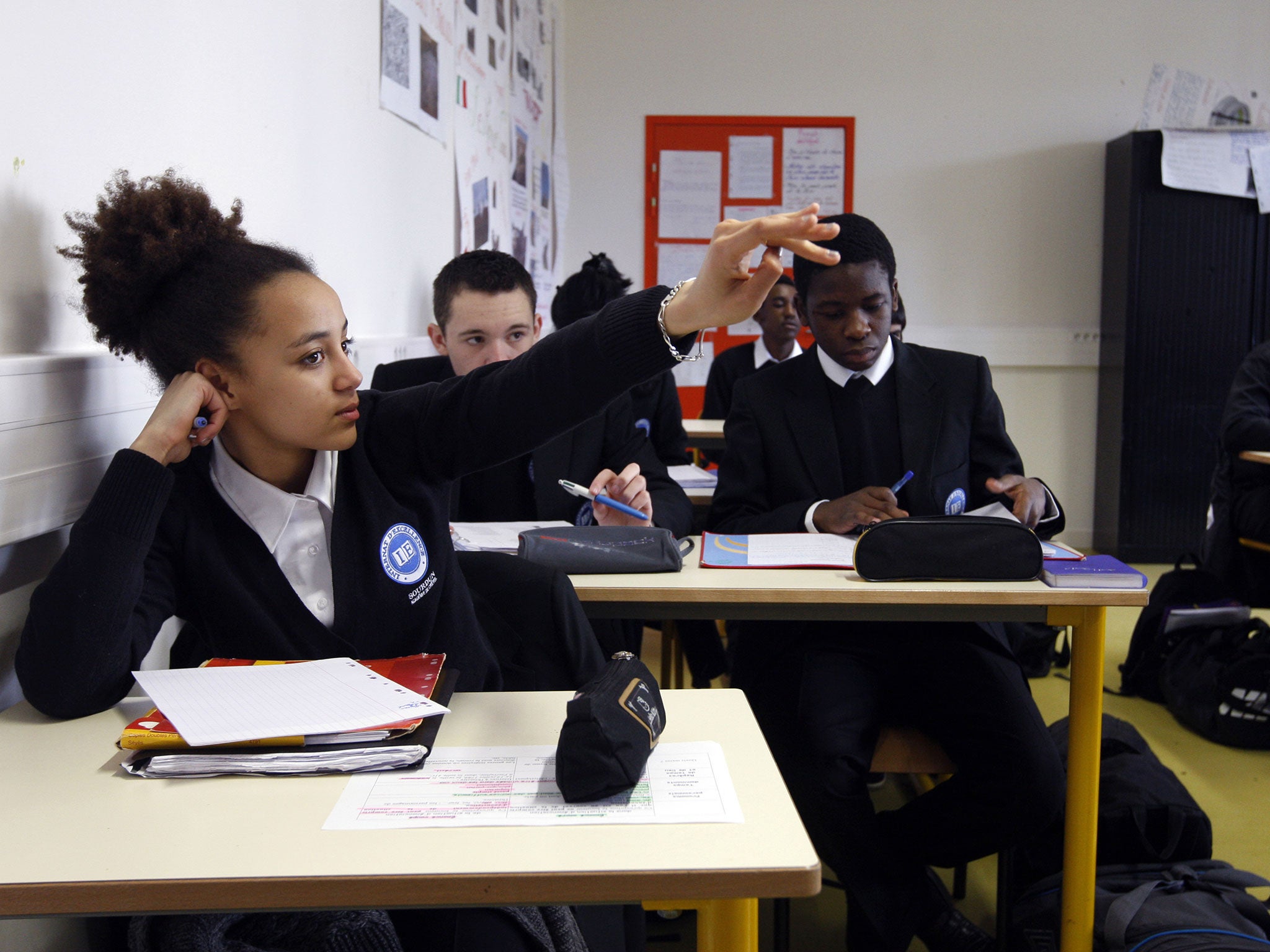Exclusive: Must do better? Black pupils did, with best improvement in exams
Ministers point to successful reforms for improvements

Your support helps us to tell the story
From reproductive rights to climate change to Big Tech, The Independent is on the ground when the story is developing. Whether it's investigating the financials of Elon Musk's pro-Trump PAC or producing our latest documentary, 'The A Word', which shines a light on the American women fighting for reproductive rights, we know how important it is to parse out the facts from the messaging.
At such a critical moment in US history, we need reporters on the ground. Your donation allows us to keep sending journalists to speak to both sides of the story.
The Independent is trusted by Americans across the entire political spectrum. And unlike many other quality news outlets, we choose not to lock Americans out of our reporting and analysis with paywalls. We believe quality journalism should be available to everyone, paid for by those who can afford it.
Your support makes all the difference.Black pupils have achieved the biggest rise in test and exam results of any ethnic group in the country, according to new statistics published tomorrow.
Figures show the gap between their GCSE results and the average for the country has been cut by more than half in just four years – from 5.8 per cent to 2.5 per cent last year.
Nationally, 58.1 per cent of black pupils achieved the benchmark of five A* to C grade passes at GCSE including maths and English – up 8.8 per cent since 2010.
The improvement is most marked amongst the poorest black boys who have reduced the gap in the percentage reaching that benchmark by 4.4 percentage points since 2009 – bringing the total achieving the benchmark up to 43.1 per cent.
The figures mark the end of a long period during which black pupils have languished at the bottom of the league table detailing the performance record of different ethnic groups in exams.
In both English and maths, black pupils outscore the rest of the country at secondary school in terms of the progress made – with 76.2 per cent and 74.2 per cent of pupils making the expected level of progress or better – compared with 70.4 per cent and 70.7 per cent for all pupils.
Key reasons for the improvement include the introduction of the English Baccalaureate – which has persuaded schools to enter thousands more pupils for core academic subjects since its introduction in 2011. Under it, schools are ranked in league tables on the percentage of pupils getting top grade passes in maths, English, a language, a humanities subject and the sciences.
In addition, schools have been able to earmark “pupil premium” funding, given to them for every disadvantaged pupil they take, to ensure poorer pupils catch up – and are then able to access the more academic subjects.
The success story also holds for the results of national curriculum tests for 11-year-olds in maths, reading and writing – where 73 per cent of black pupils reached the expected benchmark last year – only two percentage points behind the national average compared with a five percentage point difference in 2010.
Schools minister Lord Nash said: “For years black pupils’ results have lagged behind their peers but that gap is being eroded at all levels – The Government’s school reforms are helping thousands more black pupils, including the poorest, to do well at primary school, thrive in their GCSEs and succeed in life.”
The increase in achievement has prompted major changes in the way some charities approach helping disadvantaged young people. For instance, Generating Genius, launched by black academic Dr Tony Sewell several years ago to improve the performance of Afro-Caribbean young people in the sciences, has now widened its target audience to take in disadvantaged young people of all backgrounds and is starting a new project in the Medway Towns in Kent.
Join our commenting forum
Join thought-provoking conversations, follow other Independent readers and see their replies
Comments